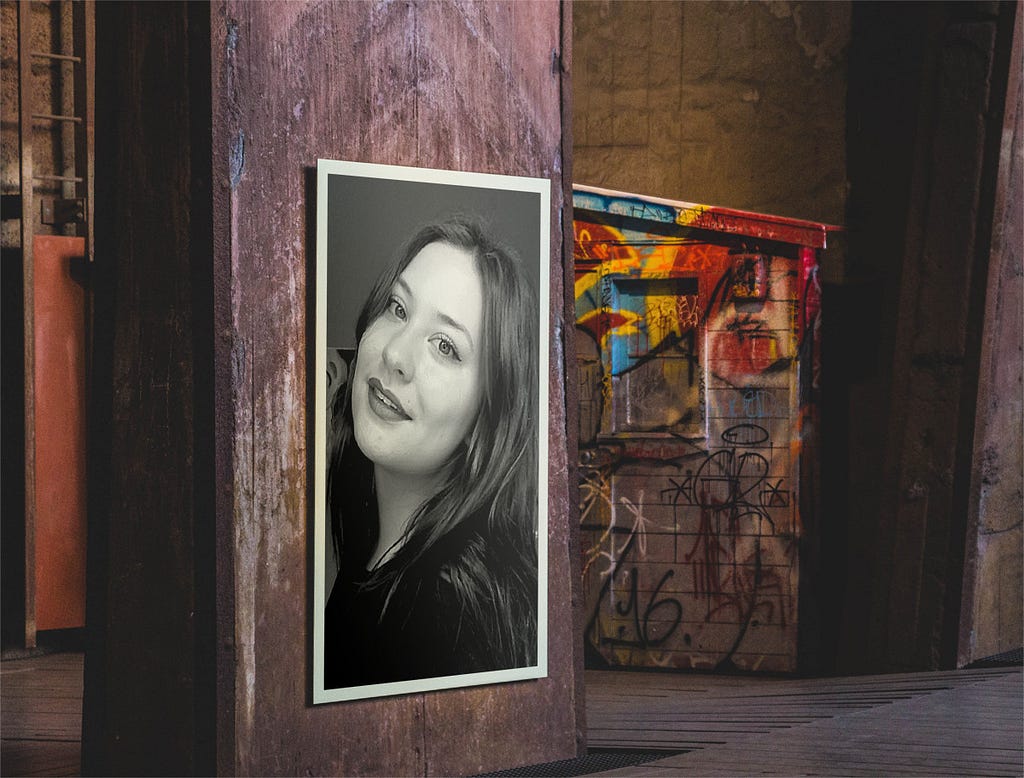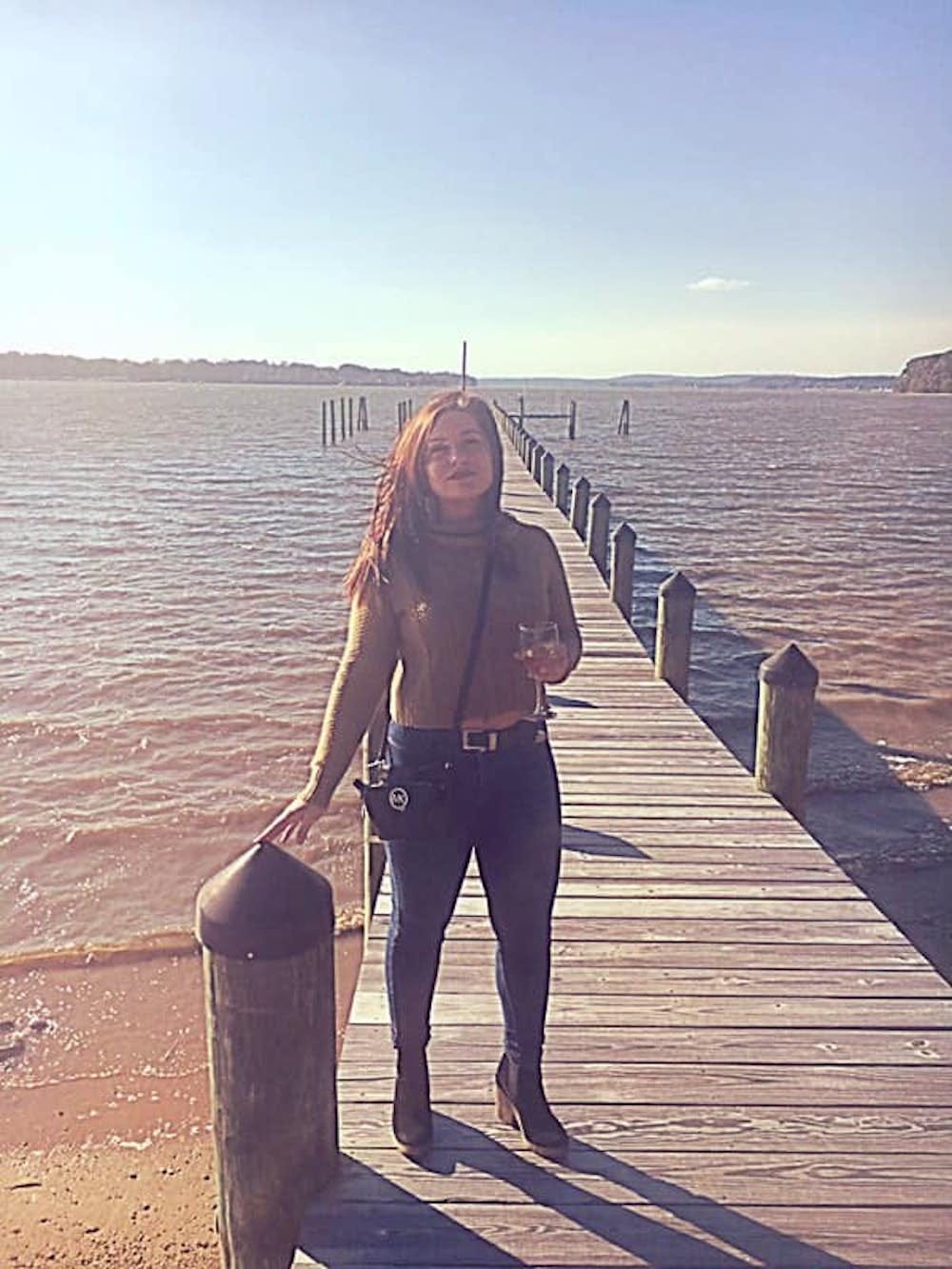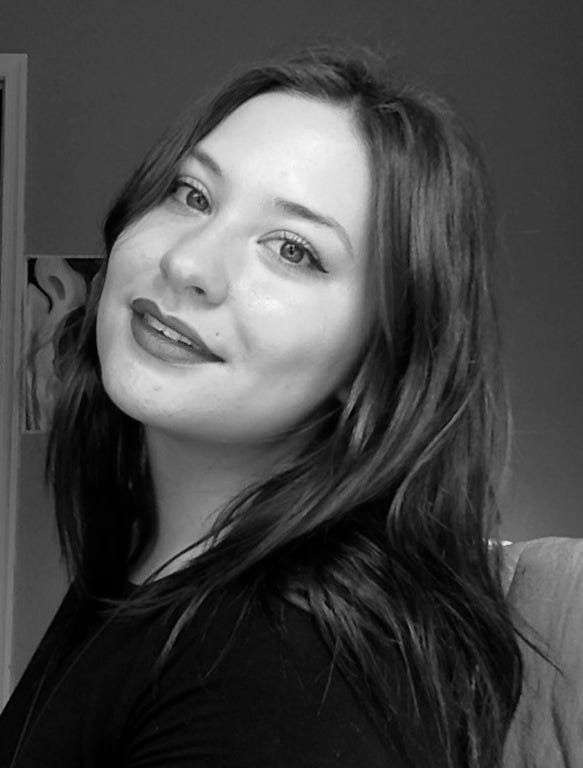“To better understand yourself and accept yourself, you first need to realize that society has given you a lot of false, limiting beliefs” with Mikaela Delia and Fotis Georgiadis

Because of that, it starts with you. To better understand yourself and accept yourself, you first need to realize that society has given you a lot of false, limiting beliefs. Your sole purpose in life is to be happy and give and receive love. Your time here is a gift that the Universe desperately doesn’t want you to waste. Start by assessing your limiting beliefs and begin to strip then. It is then that you can truly learn about yourself.
I had the pleasure of interviewing Mikaela Delia, a freelance writer, marketer, and self-help blogger who escaped corporate life to work for herself. She frequently writes articles for the mind, body, and soul. She follows the work of Bob Proctor, Jen Sincero, Gabby Bernstein, Rhonda Byrne and Gary Chapman. Mikaela loves all things nature and being outside, as well as sustainable living, food, and meeting new and exciting people.
Thank you so much for joining us! I’d love to begin by asking you to give us the backstory as to what brought you to this specific career path.
It’s my pleasure! I was brought to this career path after having quite a spiritual awakening at age 24. I was introduced to the work of Gabby Bernstein which prompted my own spiritual journey. After finding myself in a job I hated and having done enough soul searching to see where I was truly meant to be, I was brought here.
Are you working on any exciting new projects now? How do you hope that they might help people along their path to self-understanding or a better sense of wellbeing in their relationships?
Right now I’m still very much in the self-discovery phase, but I frequently share what I’ve learned with others who may be in the same place spiritually as me in pieces on my blog or on social media. Self-discovery and enlightenment is a specially tailored journey for each person, but I hope that first and foremost that people open themselves up to begin that journey. To progress, you have to fight your internal resistance and indeed allow yourself to become enlightened.
Do you have a personal story that you can share with our readers about your struggles or successes along your journey of self-understanding and self-love? Was there ever a tipping point that triggered a change regarding your feelings of self-acceptance?
Absolutely. Ever since I first started my career in marketing, I had this vision of being a big marketing exec that directed a team and had a very, what I thought to be considered “successful” career. It was ingrained in my subconscious that salary, power, leadership, and high-powered connections were all indicators of a successful career. I was also taught that if I worked hard, I could climb the corporate ladder to the top.
The problem with this was that there was a minimal emphasis on the fact that a successful career also has to do significantly with the fulfillment and satisfaction you get from it. Pretty soon, I was in a job that was outwardly very impressive, but I hated. I had very little self-esteem because my work suffered due to my job dissatisfaction. I came to the conclusion that enough was enough and I quit my corporate job to become my own entity no matter what it took. So began my journey to finding what actually made me happy, and loving myself enough to be free from the cages we’re gradually put in throughout our lives from our parents, society, and other people. It was during that time I realized that self-love is a life-long journey of fueling yourself with love, trust, and respect yourself enough to desensitize yourself to the negativity around you to help you reach your dreams.

According to a recent study cited in Cosmopolitan, in the US, only about 28 percent of men and 26 percent of women are “very satisfied with their appearance.” Could you talk about what some of the causes might be, as well as the consequences?
This comes as no surprise to me, whatsoever. I think ultimately it starts with a gradual increase of a warped perception of ourselves that becomes more harmful over time. The constant comparing of ourselves to other people, especially people in the media, in addition to perceiving ourselves as imperfect damages our self-esteem. This often leads to a downward spiral of unhealthy habits.
It’s difficult to do, and the recovery never stops, but the remedy to this is altering your perception of yourself when you look in the mirror, at pictures, focusing on lack, and other self-sabotaging views of yourself. The words in your head when you assess how you look should be like that of a caring friend or family member, and not like that of a bully or critic.
As cheesy as it might sound to truly understand and “love yourself,” can you share with our readers a few reasons why it’s so important?
Loving yourself is important because it’s a ripple effect for literally everything that you do. Think about it, the epicenter of everything that happens to you, everything you do, everything you accomplish starts with YOU. Not having love for yourself and not believing in yourself, taints your entire output and can attract negative energy and negative situations. In order to live your best life, you have to look inward at what’s obstructing your self-love.
Why do you think people stay in mediocre relationships? What advice would you give to our readers regarding this?
Loving yourself is important because it’s a ripple effect for literally everything that you do. Think about it, the epicenter of everything that happens to you, everything you do, everything you accomplish starts with YOU. Not having love for yourself and not believing in yourself, taints your entire output and can attract negative energy and adverse situations. To live your best life, you have to look inward at what’s obstructing your self-love.
When we talk about self-love and understanding we don’t necessarily mean blindly loving and accepting ourselves the way we are. Many times self-understanding requires us to reflect and ask ourselves the tough questions, to realize perhaps where we need to make changes in ourselves to be better not only for ourselves but our relationships. What are some of those tough questions that will cut through the safe space of comfort we like to maintain, that our readers might want to ask themselves? Can you share an example of a time that you had to reflect and realize how you needed to make changes?
It starts by genuinely listening to the constructive feedback people have for you. We’re consistently being given feedback all the time regarding who we are as a person, though some are more apparent than others. To want to be a better person, partner, employee, etc. it’s up to us to be mindful of this feedback and accept it with grace.
For a long time, I struggled with accepting criticism. I perceived criticism as a hit to my ego and often reacted emotionally or defensively. It wasn’t until my romantic partner mentioned to me that I’m not the best at taking criticism to which I sharply replied: “umm, that is NOT true.”
It was at that moment that I realized not accepting criticism wasn’t helping me be my higher self. It was tainting how others perceived me, stunting my growth relationship and career-wise, and over-all was NOT cute. Bettering ourselves for ourselves and others is a beautiful thing, that starts with seriously digesting other’s feedback, despite how uncomfortable it may be.
So many don’t really know how to be alone or are afraid of it. How important is it for us to have, and practice, that capacity to truly be with ourselves and be alone (literally or metaphorically)?
Humans have the fantastic primal capability of being able to survive both in packs and in solitude. That means that naturally, you were given the ability to be alone. Not being able to be alone means that you have a spiritual blockage preventing you from doing so.
Usually, this stems from a deeper rooted fear or trauma that you haven’t addressed and allowed to pass through you. You’re running from something. It’s not being okay with aloneness that’s important, it’s addressing whatever is preventing you from doing it.

How does achieving a certain level of self-understanding and self-love then affect your ability to connect with and deepen your relationships with others?
A person with a high degree of self-love and self-understanding has a heightened perspective capable of identifying a lack of self-love and self-understanding in others. Instantly, they can empathize and offer spiritual assistance.
Achieving a high degree of self-love and self-understanding just makes you more perceptive to the world around you, in general. It doesn’t mean you’re better than anyone, it merely means that you have a deep understanding that everyone is facing their own unique dichotomy of internal and external struggles and you want to do your part to be the light.
In your experience, what should a) individuals and b) society, do to help people better understand themselves and accept themselves?
Golly, there’s so much as a society we can do to help people better understand themselves. A lot of our thoughts, ideas, opinions, beliefs in us are ingrained in our being at birth from our parents. It gets worse over time as the media, other people, and our surroundings imprint false beliefs in our heads. Society has a lot of work to do to nurture better views of ourselves.
Because of that, it starts with you. To better understand yourself and accept yourself, you first need to realize that society has given you a lot of false, limiting beliefs. Your sole purpose in life is to be happy and give and receive love. Your time here is a gift that the Universe desperately doesn’t want you to waste. Start by assessing your limiting beliefs and begin to strip then. It is then that you can truly learn about yourself.
What are 5 strategies that you implement to maintain your connection with and love for yourself, that our readers might learn from? Could you please give a story or example for each?
- Meditate- meditation is potent. Before I meditated, I also just had a “feeling” that higher energy was communicating with me. I was able to fully interpret these messages once I got into meditation.
- Take care of your temple- This might seem silly, but I pretend my body is an ancient temple or museum. I avoid introducing things that will hurt its preservation, I maintain it, and I honor all the exhibits inside. Start thinking of your body as your house or your most valuable asset- it’s the best place you’ll ever live!
- Look for miracles- little miracles are happening around you all. The. Time. Next time you’re in a restaurant, at the gym, etc. venture out of your own head and try and find a little miracle.
- Balance the “holy triangle”- I like to break down my existence into body, mind, and soul. They’re a well-balanced triangle, so if something is thrown off, it’s likely caused by or will affect, the others. Try not to let it.
- Choose love, not fear. Example: instead of worrying about being able to pay bills this month, choose not to. I know that sounds crazy, but counter-acting your fear-based thoughts with positive thoughts, love, and gratitude makes good things happen…trust me.
What are your favorite books, podcasts, or resources for self-psychology, intimacy, or relationships? What do you love about each one and how does it resonate with you?
I resonate strongly with the work of Gabrielle Bernstein, Jen Sincero, and Rhonda Byrne. Seriously, their books, articles, interviews, etc. are so incredibly awakening. “You Are a Badass” actually helped me find the courage to quit the corporate job I hated by reversing my limiting beliefs and trusting the Universe.
For relationships, the “5 Love Languages” by Gary Chapman is incredibly helpful in analyzing how each of us best communicates our love, and how we can use that understanding to improve our relationships. I now use it to help other couples by encouraging them to discover their primary love languages.
You are a person of great influence. If you could inspire a movement that would bring the most amount of good to the most amount of people, what would that be? Maybe we’ll inspire our readers to start it…
I had this idea ( I do it myself) to create what I called “one little thing.” Basically, every day you try and do one little thing, no matter how small. Ideally, you’d want to make the little thing you do gradually get bigger over time. Starting points could be, picking up one piece of trash, holding the door open, helping someone carry something heavy. Wave to a child or an elderly person, etc.
Doing good is both contagious and addictive. Pretty soon, someone’s entire life could be devoted to being, seeing, and doing good.
Can you please give us your favorite “Life Lesson Quote” that you use to guide yourself by?
Can you share how that was relevant to you in your life and how our readers might learn to live by it in theirs?
Maya Angelou once said “if you don’t like something, change it. If you can’t change it, change your perspective.” This has always resonated with me, and I try to live by this quote as best as I can. I think what so great about it is that it could apply to literally any area of your life. How you look, your financial situation, society, etc. It’s universal. This has helped me gradually eliminate all the areas/things in my life I don’t like. Pretty soon, all you’ve have left is everything you love!
Thank you for all of these great insights!
“To better understand yourself and accept yourself, you first need to realize that society has… was originally published in Authority Magazine on Medium, where people are continuing the conversation by highlighting and responding to this story.



